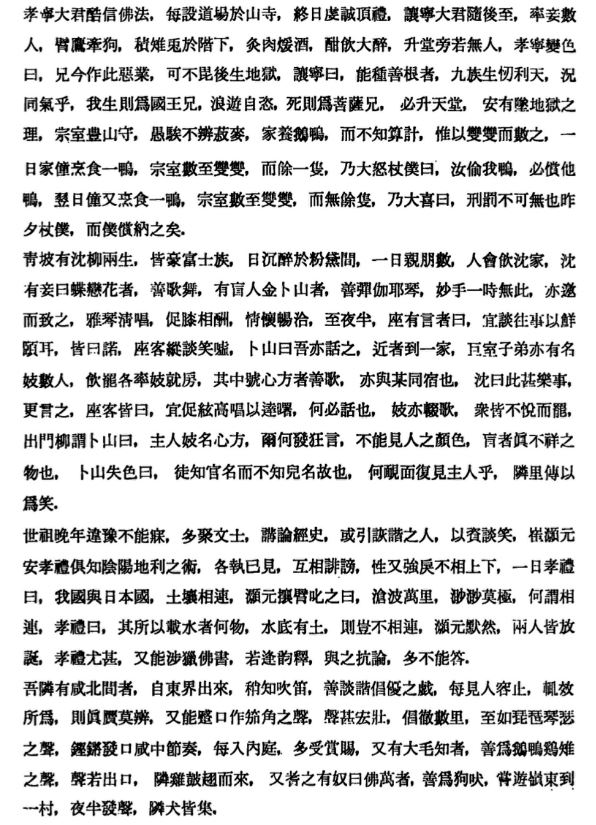(Translation) 2019 宗室豐山守
| Primary Source | ||
|---|---|---|
 |
Title | |
| English | “Chongsil P’ungsan su”[Magistrate of P’ungsan, a royal kinsman] | |
| Chinese | 宗室豐山守 | |
| Korean(RR) | 종실풍산수 | |
| Text Details | ||
| Genre | Short Story | |
| Type | Literature | |
| Author(s) | Sŏng Hyŏn 成俔 | |
| Year | ||
| Source | 慵齋叢話 'Yongjae ch’onghwa' | |
| Key Concepts | geese, ducks, magistrate | |
| Translation Info | ||
| Translator(s) | Participants of 2019 JSG Summer Hanmun Workshop (Intermediate Training Group) | |
| Editor(s) | ||
| Year | 2019 | |
Original Script
Translation
Student Translation : Nadia Arzberger
A magistrate of P'ungsan, a royal kinsman. He was so stupid that he could not differentiate between beans and grains1. In his house he raised geese and ducks. But did not know how to count. Just by pairing pairs [2x2] can he count them. One day, his house boy boiled and ate one duck. The magistrate counted by pairs. And one was leftover. So, he got very upset and flogged his servant2 [with a cane] saying: You stole my duck. [You] must re-compensate [with] another duck. The next day, the servant again boiled and ate one duck. The magistrate counted by pairs. There was no leftovers. He was very happy saying “Punishment cannot not be used. The past night I flogged the servant and the servant re-compensated it now.”
1) This is a idiom to indicate just how stupid the magistrate is since beans and grains do not look anything alike.
2) This is the same servant boy, but possibly the reason he uses both 'house boy' and 'servant' is because prior to the boy eating the duck the author viewed him a certain way but afterwards viewed him more negatively.
- Discussion Questions:
Do you agree with the magistrate's comment that punishment cannot not be used? For instance, if he had simply yelled at the servant boy and had not flogged him would the servant boy still have eaten the second duck? If so, regardless of punishment, the magistrate would have been re-compensated and this would disprove his point.